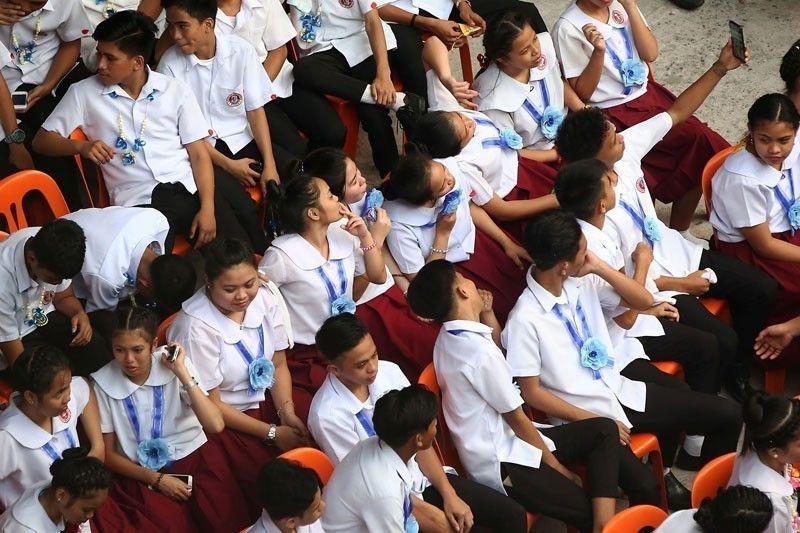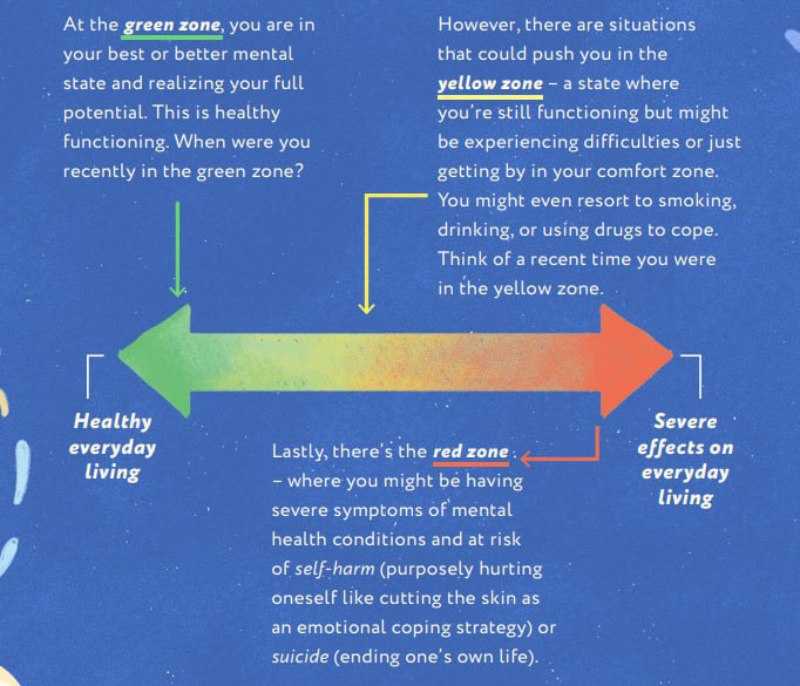COMMENTARY: Nurturing mental health in Filipino youth

MANILA, Philippines Adolescence is full of surprises and new events that can mold a person's character. However, while the teenage years are full of promise, they are far from easy, especially when you add a pandemic to the equation.
The COVID-19 pandemic posed particular challenges for Filipino teens, who had to stay home and away from friends and family for an extended period of time. They missed out on some of the most memorable and important times for social and emotional growth. These formative teenage years will never be fully regained, and their impact on young people’s mental health will be felt for years to come.
When it's just not your day
Our mental health–our feelings and emotions that impact our behavior—isn’t black and white. Sometimes, it’s hard to determine exactly how it is you’re feeling or why, and how to deal with it. Mental health falls on a continuum, where you can move back and forth along a spectrum.

Depending on how you’re feeling, you could fall under any of these three zones:
- Green Zone
- Generally satisfied and happy
- Emotionally well-balanced, stable, and can cope with the normal stresses and challenges of day-to-day life
- Yellow Zone
- Shows some distress and inability to cope with a significant event (e.g., grief, the pandemic affecting our work or school life)
- Capable of performing daily life functions
- Red Zone
- Unable to cope with stress
- Exhibits significant changes in thoughts, behaviors, and actions
- Symptoms can be significant and prolonged that require professional support
Minding your mental health
Not all days are “green” days—some days are more trying than others, especially for young people. They are dealing with the influence of hormones and other factors on their emotions and well-being, all while recovering from the effects of the pandemic.
But we don’t need to wait for our teens to have a string of red days before seeking professional help or urging them to take steps to manage their mental health.
Big feelings such as stress, fear or anger can be challenging to manage, but there are several exercises we can teach teens—and adults—to help manage these emotions. These include deep breathing exercises, eating a well-balanced diet, setting personal boundaries and scheduling time out of our day to focus on feelings and emotions—our mental health.
However, while these exercises are helpful, it's important to reach out to a mental health expert for the right kind of support when dealing with more serious feelings like anxiety or depression. Your own efforts, coupled with the appropriate professional help, is a big step forward towards improving your mental health.
There are several mental health care resources to help our teens manage their emotions, developed by the Department of Health and the United States Agency for International Development (USAID). These include the “A Moment for Myself: Taking Good Care of My Mind & Body” Booklet, which provides mental health information and self-care practices available in English, Tagalog and Bisaya; the Malayaako.ph website, with educational articles available in Filipino; the Lusog-Isip app, the Philippines’ first mobile application geared towards providing mental health support and self-care reminders.
In addition to these, teens can also find support by accessing MentalHealthPH’s Mental Health Support Directory, availing Philippine General Hospital’s (PGH) free psychiatric consultation and counseling services, or calling the National Center for Mental Health (NCMH) hotline.

It’s okay to not be okay
Recognizing and accepting that you’re not okay is the first step to mental wellness— it's a sign of strength and self-awareness. This paves the way for seeking assistance, whether through conversations with loved ones or professional mental health support.
Fortunately, there are several accessible and free resources to help everyone with their mental wellness journey, especially our Filipino youth.
With the right resources and support system, you can help teens navigate the “yellow” and “red” days and emerge from them with a newfound resilience.
The Department of Health urges people seeking professional support to get in touch with the National Center for Mental Health hotlines at 0917-899-USAP (8727) or 899-USAP (8727); or its Mind Matters hotline at 0918-942-4864.
About the Author: Jan Aura Laurelle Llevado, MD, is the division chief of Mental Health and Cancer Control Divisions and head secretariat at Philippine Council for Mental Health.
Editor’s Note: This article was published by the Advertising Content Team that is independent from our Editorial Newsroom.




















